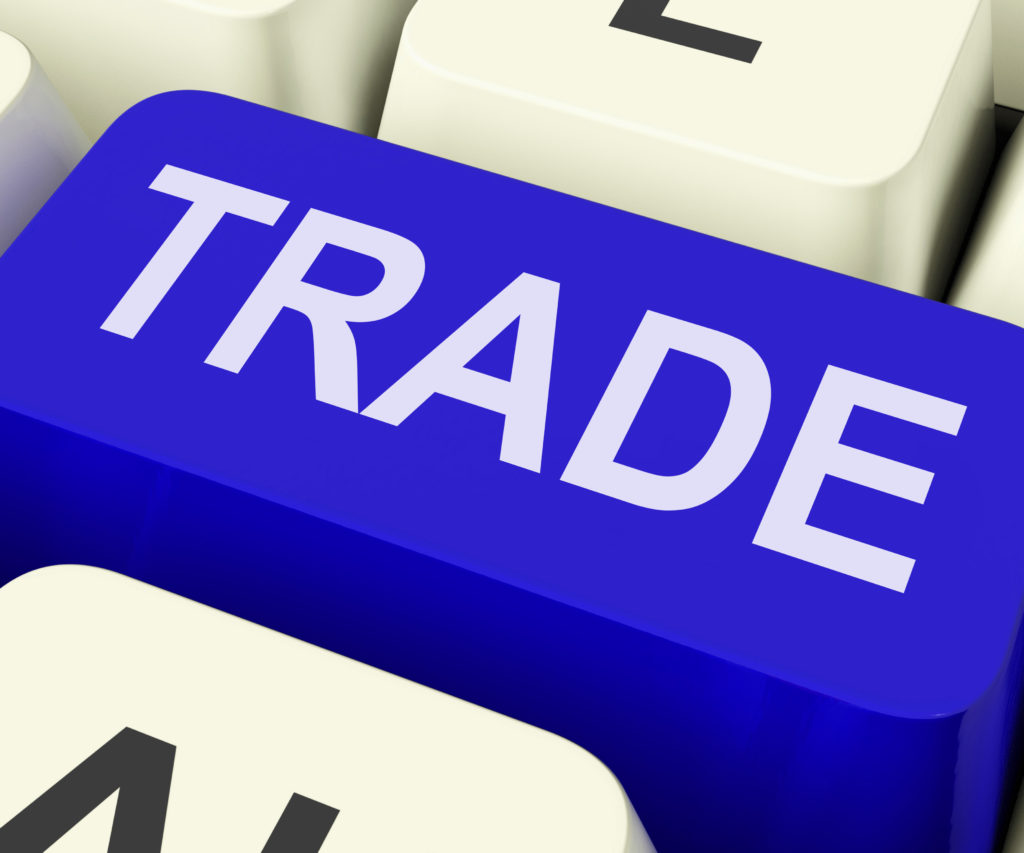You’re one year away from retirement and wake up one day to find your life savings gone after a stock market crash. That’s what many people faced during the 2008 economic crash, and many have not recovered from the sting of losing their life savings. Further, experts maintain that an impending downturn is on the horizon and could mimic the 2008 meltdown. However, there are investment havens that fare well against any stock market crash that comes your way.
5. The Wonders of Steady Eddie Stocks
You may be thinking that stocks would be the last place to invest during market turmoil, but you should pay attention to so-called Steady Eddie shares, which are low-risk stocks from companies that usually perform better than others during an economic downfall. Safe stocks in this category withstood the 2008 economic meltdown and gained traction when tech stocks crashed in the early 2000s.

To start, search for companies that have a solid growth record over a 10-year time frame. Companies with consistent earnings demonstrate the ability to withstand the stress of bad economic times. Additionally, you can invest in businesses offering products that people need during good or bad economies. For instance, companies that sell hygiene products in the form of toothpaste or soap usually perform better than other organizations.
Moreover, experts stress that you should invest in Steady Eddies regardless of economic conditions. There are no glaring drawbacks to Steady Eddies, but it takes diligence and research to find the best ones that will maximize your portfolio. You can find Steady Eddies in such places as ETFs, otherwise known as exchange-traded funds.
4. A Pool of Safer Investments
ETFs comprise a collection of commodities, stocks, bonds, and other assets. Acting as mutual funds and trading like stocks, ETFs are also prime havens for niche investments, such as commodities or Steady Eddies. With that, ETF critics contend that ETFs foster a glut in certain assets and distort prices. Detractors also claim that ETFs could trigger a market crash. The best way to navigate the world of ETFs is to steer clear of leveraged or inverse ETFs.

One of the main reasons why leveraged ETFs are volatile is because they rely on derivatives, which are highly speculative, no-value bets that triggered the 2008 meltdown, and the economy currently suffers from another derivatives bubble that will inevitably burst. Despite the short-term gains, leveraged ETFs underperform over the long-term. Standard ETFs are your best bet, especially ones in a specific niche or asset category. If you’re still looking for stocks within individual companies, consider shares that offer high returns only.
3. High-Class Dividends
When looking for high-value shares, search for a preferred stock category within a company. A preferred stock class is a high-tier stock that prioritizes dividend payments to you before lower-class stock groups. For example, a company will pay preferred stockholders before common stockholders. Preferred stocks amount to a form of bond that comes with a guaranteed fixed dividend. Also, these stocks perform better under fallen markets. Regardless of market conditions, the company will pay you accordingly, so long as the company is financially solvent.

Further, preferred stocks pay higher dividends than common stockholders on a regular basis. To maximize returns, find a company that only offers the best dividends. Choose a preferred stock plan from a company that has a great track record of generating earnings, regardless of economic factors.
With that, companies cannot always guarantee preferred dividends, especially if the company undergoes financial ruin, and you may see more short-term losses. Also, preferred stockholders are behind corporate bondholders when it comes to claiming company assets during bankruptcies. If you choose the corporate bond route, look for corporations that offer bonds to expand operations within a certain department. Corporations usually offer bonds to obtain quick capital from investors. Whether you choose corporate bonds or preferred stock, ensure that the company has a stellar reputation and a good track record of paying dues on time.
2. The Safety of Government Security
If you’re not comfortable with corporate bonds, consider the public sector. Whenever you hear Congress talk about not raising the debt ceiling, this means that politicians are debating whether to pay obligations that the United States already owes, and bonds fall under this category. Treasury bonds are stable investments because the U.S. government backs them with a full guarantee. Regardless of economic status, the government will pay the interest and principal on time and according to the bond terms.

Politicians know that they must honor paying T-bills because failure to do so would downgrade the U.S. credit rating. Despite the political rhetoric over the debt ceiling, they are one of the best options for investors looking for retirement or steady income. T-bills have a 30-year term, but inflation will devalue your returns over time. If bonds or safe stocks don’t suit your fancy, consider investments that are more tangible.
1. Follow the Golden Path
The great thing about commodities is that they always retain value in some form or another. These precious items are also safer investments if market volatility concerns you. During times of market distress, many investors use commodities to enhance portfolio diversification and buffer inflation, which has a negative impact on stocks and bonds. Regardless of the economy’s ups and downs, balancing your portfolio with commodities will yield greater diversification and reduce your risk factor.

However, commodities come with instability in the form of fluctuating supply and demand, import regulations, and the state of national and global economies. To be successful in the commodities trade, you must sift through various commodities to spot the hottest markets. Base metals such as aluminum, copper, and zinc are in-demand commodities, which mainly stems from China’s thriving manufacturing and construction sectors.
Oil is another commodity that remains in demand, especially due to high growth in China. Petroleum alone will always generate interest among investors because of its incorporation into plastics, shingles, cosmetics, among other products. Gold plays a major role in the jewelry and tech industries, and central banks hold it in high regard. Tensions in the Middle East have also enhanced its value. If you don’t wish to buy stockpiles of gold bars or coins, invest in commodity-based companies, such as a mining firm or oil company. Also, consider ETFs that specialize in the commodities trade.























